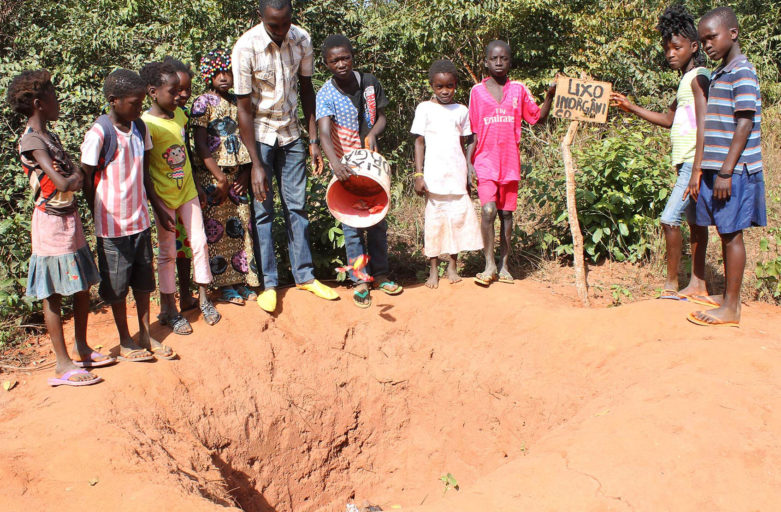My name is Louis Sanha of Quere village, from Balanta tribe. I have been in the project Farmers’ Club for 17 months, but what I have learnt and achieved from this project is more than what I expected.
In my life I had never practiced horticulture; this year I established a vegetable garden of more than half a hectare and managed to produce 528 kg of tomatoes, 259 kg of water melon, 167 kg of onion including 89kgs of carrots. I was just trying. Furthermore, I also produced Cabbage, green pepper, djagatu, okra, lettuce, and local varieties of vegetables grown in our country.
The total production which has come out of this land is more than 4.5 tons. My life has really changed and my family is now a happy one. During the start of the project I was so reluctant to join but now I am very satisfied with the activities.”
Louis Sanha’s income level has increased because he has a supplementary income flowing from the horticulture activities. The capacity he developed had empowered him to economically build a hedge from hunger, economic vulnerability and also take farming as a business venture. Using the hand dug well for water provision in the initial stages has worked to his advantage as he has a perennial water source which supports market gardening. He foresees investment in a low-cost rope and washer pump to boost water supply and increase acreage as well as venturing into cashew-nut production.
Louis has been a model farmer in the tribe of Balantas where horticulture production is usually not generally in practice among the rural small-scale farmers. The mobilization for horticulture production is a key step in crop-diversification, nutrition support and commercialization of agronomy among rural farmers. It is a break-through when one regards such gardening roles being culturally expected to be undertaken by women as compared to men.
